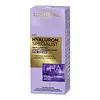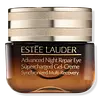What's inside
What's inside
 Key Ingredients
Key Ingredients

 Benefits
Benefits

 Concerns
Concerns

 Ingredients Side-by-side
Ingredients Side-by-side

Water
Skin ConditioningDimethicone
EmollientGlycerin
HumectantSilica
AbrasiveAcrylamide/Sodium Acryloyldimethyltaurate Copolymer
Emulsion StabilisingPrunus Armeniaca Kernel Oil
MaskingAdenosine
Skin ConditioningCaffeine
Skin ConditioningDisodium EDTA
Hydroxyethylpiperazine Ethane Sulfonic Acid
BufferingSodium Hyaluronate
HumectantTriethanolamine
BufferingTocopheryl Acetate
AntioxidantAcrylates/C10-30 Alkyl Acrylate Crosspolymer
Emulsion StabilisingCI 77891
Cosmetic ColorantIsohexadecane
EmollientMica
Cosmetic ColorantPolysorbate 80
EmulsifyingSorbitan Oleate
EmulsifyingTin Oxide
AbrasiveDimethicone/Vinyl Dimethicone Crosspolymer
Skin ConditioningDimethiconol
EmollientChlorphenesin
AntimicrobialPhenoxyethanol
PreservativeWater, Dimethicone, Glycerin, Silica, Acrylamide/Sodium Acryloyldimethyltaurate Copolymer, Prunus Armeniaca Kernel Oil, Adenosine, Caffeine, Disodium EDTA, Hydroxyethylpiperazine Ethane Sulfonic Acid, Sodium Hyaluronate, Triethanolamine, Tocopheryl Acetate, Acrylates/C10-30 Alkyl Acrylate Crosspolymer, CI 77891, Isohexadecane, Mica, Polysorbate 80, Sorbitan Oleate, Tin Oxide, Dimethicone/Vinyl Dimethicone Crosspolymer, Dimethiconol, Chlorphenesin, Phenoxyethanol
Water
Skin ConditioningDimethicone
EmollientMethyl Trimethicone
Skin ConditioningBifida Ferment Lysate
Skin ConditioningDimethicone/Vinyl Dimethicone Crosspolymer
Skin ConditioningPropanediol
SolventPetrolatum
EmollientSucrose
HumectantGlycerin
HumectantButylene Glycol
HumectantAcrylamide/Sodium Acryloyldimethyltaurate Copolymer
Emulsion StabilisingTrehalose
HumectantTripeptide-32
Skin ConditioningAdansonia Digitata Seed Extract
Skin ConditioningLavandula Angustifolia Flower Extract
CleansingSodium Hyaluronate
HumectantLactobacillus Ferment
Skin ConditioningTocopheryl Acetate
AntioxidantYeast Extract
Skin ConditioningHypnea Musciformis Extract
Skin ProtectingSodium Rna
Skin ConditioningCaffeine
Skin ConditioningSqualane
EmollientAnthemis Nobilis Flower Oil
MaskingPoria Cocos Sclerotium Extract
AstringentCitrullus Lanatus Fruit Extract
Skin ConditioningLens Esculenta Fruit Extract
Skin ConditioningPyrus Malus Fruit Extract
Skin ConditioningEthylhexylglycerin
Skin ConditioningSodium PCA
HumectantPhytosphingosine
Skin ConditioningHydrolyzed Algin
Hordeum Distichon Extract
Skin ProtectingJojoba Esters
EmollientTriticum Vulgare Germ Oil
EmollientHydrogenated Lecithin
EmulsifyingLecithin
EmollientIsohexadecane
EmollientJojoba Alcohol
EmollientIsopropyl Jojobate
EmollientPEG/PPG-18/18 Dimethicone
EmulsifyingPolysorbate 80
EmulsifyingAcrylates/C10-30 Alkyl Acrylate Crosspolymer
Emulsion StabilisingTromethamine
BufferingSorbitan Oleate
EmulsifyingSodium Lactate
BufferingPolysorbate 40
EmulsifyingPotassium Gluconate
Skin ProtectingTocopherol
AntioxidantBHT
AntioxidantPhenoxyethanol
PreservativePotassium Sorbate
PreservativeSodium Benzoate
MaskingCI 77491
Cosmetic ColorantCI 77492
Cosmetic ColorantWater, Dimethicone, Methyl Trimethicone, Bifida Ferment Lysate, Dimethicone/Vinyl Dimethicone Crosspolymer, Propanediol, Petrolatum, Sucrose, Glycerin, Butylene Glycol, Acrylamide/Sodium Acryloyldimethyltaurate Copolymer, Trehalose, Tripeptide-32, Adansonia Digitata Seed Extract, Lavandula Angustifolia Flower Extract, Sodium Hyaluronate, Lactobacillus Ferment, Tocopheryl Acetate, Yeast Extract, Hypnea Musciformis Extract, Sodium Rna, Caffeine, Squalane, Anthemis Nobilis Flower Oil, Poria Cocos Sclerotium Extract, Citrullus Lanatus Fruit Extract, Lens Esculenta Fruit Extract, Pyrus Malus Fruit Extract, Ethylhexylglycerin, Sodium PCA, Phytosphingosine, Hydrolyzed Algin, Hordeum Distichon Extract, Jojoba Esters, Triticum Vulgare Germ Oil, Hydrogenated Lecithin, Lecithin, Isohexadecane, Jojoba Alcohol, Isopropyl Jojobate, PEG/PPG-18/18 Dimethicone, Polysorbate 80, Acrylates/C10-30 Alkyl Acrylate Crosspolymer, Tromethamine, Sorbitan Oleate, Sodium Lactate, Polysorbate 40, Potassium Gluconate, Tocopherol, BHT, Phenoxyethanol, Potassium Sorbate, Sodium Benzoate, CI 77491, CI 77492
 Reviews
Reviews

Ingredients Explained
These ingredients are found in both products.
Ingredients higher up in an ingredient list are typically present in a larger amount.
We don't have a description for Acrylamide/Sodium Acryloyldimethyltaurate Copolymer yet.
Acrylates/C10-30 Alkyl Acrylate Crosspolymer is a synthetic polymer. It is used to thicken and improve the texture of products. Due to its properties, it can prevent water and oil ingredients from separating.
Caffeine is most associated with coffee, tea, and cacao. In skincare, it helps with calming inflammation and is rich in antioxidants.
While caffeine is used to treat cellulite and and dark circles, further studies are needed to prove this. It has been believed to help with these skin conditions due to its ability to dilate blood vessels and increase blood flow.
Some studies are looking into caffeine's ability to protect against UV rays.
Learn more about CaffeineDimethicone is a type of synthetic silicone created from natural materials such as quartz.
What it does:
Dimethicone comes in different viscosities:
Depending on the viscosity, dimethicone has different properties.
Ingredients lists don't always show which type is used, so we recommend reaching out to the brand if you have questions about the viscosity.
This ingredient is unlikely to cause irritation because it does not get absorbed into skin. However, people with silicone allergies should be careful about using this ingredient.
Note: Dimethicone may contribute to pilling. This is because it is not oil or water soluble, so pilling may occur when layered with products. When mixed with heavy oils in a formula, the outcome is also quite greasy.
Learn more about DimethiconeThis ingredient is a silicone used to improve the texture of products and absorb oil. It does not get absorbed into the skin.
Like other silicones, Dimethicone/Vinyl Dimethicone Crosspolymer helps condition the skin by creating a barrier. In this sense, it can act as an emollient and trap moisture in.
This ingredient is a type of elastomer.
Learn more about Dimethicone/Vinyl Dimethicone CrosspolymerGlycerin is already naturally found in your skin. It helps moisturize and protect your skin.
A study from 2016 found glycerin to be more effective as a humectant than AHAs and hyaluronic acid.
As a humectant, it helps the skin stay hydrated by pulling moisture to your skin. The low molecular weight of glycerin allows it to pull moisture into the deeper layers of your skin.
Hydrated skin improves your skin barrier; Your skin barrier helps protect against irritants and bacteria.
Glycerin has also been found to have antimicrobial and antiviral properties. Due to these properties, glycerin is often used in wound and burn treatments.
In cosmetics, glycerin is usually derived from plants such as soybean or palm. However, it can also be sourced from animals, such as tallow or animal fat.
This ingredient is organic, colorless, odorless, and non-toxic.
Glycerin is the name for this ingredient in American English. British English uses Glycerol/Glycerine.
Learn more about GlycerinIsohexadecane is added to enhance texture, emulsify, and to help cleanse. It is an isoparrafin. It is a component of petrolatum.
Due to its large size, Isohexadecane is not absorbed by the skin. Instead, it sits on top and acts as an emollient. Emollients help keep your skin soft and smooth by trapping moisture within.
Isohexadecane is often used in products designed to help oily skin. It is lightweight and non-greasy while helping to moisturize. When mixed with silicones, it gives a product a silky feel.
Learn more about IsohexadecanePhenoxyethanol is a preservative that has germicide, antimicrobial, and aromatic properties. Studies show that phenoxyethanol can prevent microbial growth. By itself, it has a scent that is similar to that of a rose.
It's often used in formulations along with Caprylyl Glycol to preserve the shelf life of products.
Polysorbate 80 is a surfactant and emulsifier. It is used to keep ingredients together, and prevent oils and waters from separating.
It is made from polyethoxylated sorbitan and oleic acid. This ingredient can be found in cosmetics, foods, and medicine. It is water-soluble.
Polysorbate 80 may not be fungal acne safe.
Learn more about Polysorbate 80Sodium Hyaluronate is hyaluronic acid's salt form. It is commonly derived from the sodium salt of hyaluronic acid.
Like hyaluronic acid, it is great at holding water and acts as a humectant. This makes it a great skin hydrating ingredient.
Sodium Hyaluronate is naturally occurring in our bodies and is mostly found in eye fluid and joints.
These are some other common types of Hyaluronic Acid:
Learn more about Sodium HyaluronateSorbitan Oleate is created from compounds in oleic acid and sorbitol.
It is used to stabilize a product by preventing ingredients from separating. Emulsifiers help keep ingredients together, such as oils and water.
According to a manufacturer, the ingredient Sorbitan Monooleate shares an INCI name with this one.
Sorbitan Oleate may not be fungal acne safe. It can also worsen oily skin.
Learn more about Sorbitan OleateTocopheryl Acetate is AKA Vitamin E. It is an antioxidant and protects your skin from free radicals. Free radicals damage the skin by breaking down collagen.
One study found using Tocopheryl Acetate with Vitamin C decreased the number of sunburned cells.
Tocopheryl Acetate is commonly found in both skincare and dietary supplements.
Learn more about Tocopheryl AcetateWater. It's the most common cosmetic ingredient of all. You'll usually see it at the top of ingredient lists, meaning that it makes up the largest part of the product.
So why is it so popular? Water most often acts as a solvent - this means that it helps dissolve other ingredients into the formulation.
You'll also recognize water as that liquid we all need to stay alive. If you see this, drink a glass of water. Stay hydrated!
Learn more about Water